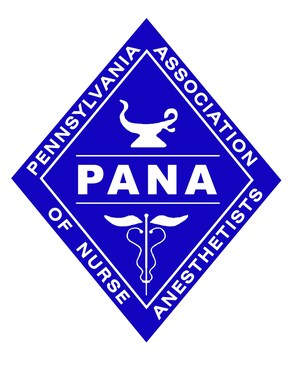Nurse Anesthetists Showcase Role, Value in Health Care
HARRISBURG, Pa., Jan. 25, 2016 /PRNewswire-USNewswire/ -- The Pennsylvania Association of Nurse Anesthetists (PANA) has launched a new campaign to ensure residents understand the role and value of certified registered nurse anesthetists (CRNAs) in delivering anesthesia care in today's health-care system.
CRNAs are the main hands-on provider of anesthesia care, practicing in every setting where anesthesia is administered, including hospital operating and delivery rooms; ambulatory surgical centers; the offices of dentists, podiatrists, ophthalmologists, and plastic surgeons; and pain management centers.
"Most patients don't know about CRNAs until they need one," said Ann Culp, president of PANA, which represents more than 3,000 CRNAs and students in Pennsylvania. "Yet, when the time comes, these advanced practice nurses never leave your side. No matter the procedure, from open-heart surgery to pain management, CRNAs are with you every step of the way."
PANA launched its campaign, "CRNAs: Making a Difference One Patient at a Time," to coincide with the 17th annual "National CRNA Week," which runs Jan. 24-30. Residents and patients can learn more about CRNAs in Pennsylvania at www.PANAforQualityCare.com, or connect with the association and CRNAs on Twitter at @PANACRNA and via Facebook at www.facebook.com/PANACRNA.
CRNAs were the first professional group to provide anesthesia in the United States and are the oldest recognized group of advanced practice registered nurse specialists in the country, with a history that spans back to the Civil War.
CRNAs safely administer more than 34 million anesthetics to patients in the United States each year and remain the primary anesthesia providers in rural America. In fact, more than two-thirds of all rural hospitals rely on CRNAs to provide anesthesia care. Without CRNAs, some 1,500 facilities would be unable to maintain trauma stabilization and surgical and obstetrical capabilities, forcing many rural Americans to travel long distances for such services.
Because of advanced training and experience --- which includes advanced degrees, more than 2,500 hours in clinical training, national testing and regular recertification --- numerous medical studies show there is no statistical difference in patient outcomes when a CRNA provides treatment with or without an anesthesiologist present.
Learn more about CRNAs in Pennsylvania. Visit www.PANAforQualityCare.com.
SOURCE Pennsylvania Association of Nurse Anesthetists
Related Links
WANT YOUR COMPANY'S NEWS FEATURED ON PRNEWSWIRE.COM?
Newsrooms &
Influencers
Digital Media
Outlets
Journalists
Opted In



Share this article